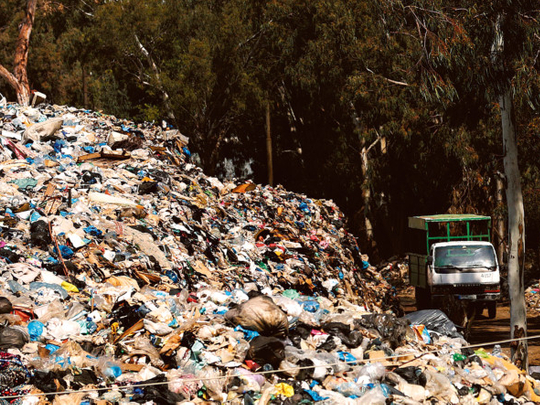
The political situation in Lebanon is so twisted, tight-fisted and hamstrung that we’ll likely still be talking about the deadlock of choosing a new president for the beleaguered state this time next year! As the Lebanese ‘celebrated’ the second anniversary of being without a president on May 25, the people have become eerily non-plussed.
Lebanon is without a president and it is likely to be so for the foreseeable future. You can pick or choose words to describe this political malaise: The country is in a current paralysis, a political vacuum. This presidential impasse is an outright violation of the constitution to some. There is a lingering sense of deja vu.
At the centre of this dispute are two riling political groups, March 8 and March 14, with their ragtag parties and ideological baggage. Divided along a mish-mash of sectarian nuances; Shiite, Sunni, Druze and Christian, which appear to be hopelessly divided even amongst themselves, they have long had their daggers out and refused to elect a president who is not to their liking and not in favour of their political tendencies.
The divisions are sharp and they may even be intractable due to the penchant for narrow-mindedness and sectional interests, rather than thinking of the bigger picture and acting in the nation’s interest. Parliamentary and legislative business is continuing at a snail’s pace, with the disruption of 17 draft laws that are waiting to be debated and ratified by the soon-to-be president. There are also vacant ambassadorial positions around the world that need to be filled up.
The political process in indeed at a standstill. The Lebanese house needs to be put in order. It is simply not good to sweep issues under the carpet and hope things will be ok tomorrow, because unless you get to the nuts and bolts of the situation, you won’t be able to get very far and the issues will eventually explode, such as the piling garbage on the streets of Beirut since last July, and yet nobody seems to be interested in resolving the mess.
Beirut stinks. For goodness sake, get the shovels out! The choosing of a president is a bit like that. MPs need to submit their ballots, put pen to paper and raise their hands up, which is what they should be doing, instead of dilly-dallying, because there is an urgent need to strengthen the Lebanese army, protect the Lebanese state from terror groups such as Daesh (the self-proclaimed Islamic State of Iraq and the Levant) and Al Qaida and staying aware of the spillover of the Syrian war next door.
Above all, its not that Lebanese MPs are not conversing with each other. On the contrary, they are very much in tune with the wider Lebanese psyche and talk among themselves every day despite the sharp political differences. Indeed, the criticism is that they talk to one another on ‘peripheral’ issues to keep parliament going, barely. They, however, continually decide to leave the core issues unaddressed. Around 41 sessions have been held in parliament to elect a president, but all have lacked quorum — a minimum of 86 members present and voting in the 128-member parliament. Parliamentary Speaker Nabbih Berri has scheduled the next session for a presidential vote on June 2, but this seems to be turning into a farce and not really worth talking about.
It’s a hopeless deadlock. The problem with Lebanon — despite the regional and international guarantees of the country-wide reconciliation and the end of the 15-year civil war, in keeping with the 1989 Taif Agreement — is the outside linkages it continues to have. With Lebanon, you tend to feel there is an extended geography with its sovereignty, frequently flaunted by Israel on one hand and held hostage by whatever is happening in Syria on the other. The March 8 Group of Hezbollah and Michel Aoun of the Free Patriotic Movement are unwilling to break ranks and vote for Lebanon first. Hezbollah fears the next president may attempt to clip its wings and force it to reorder its fighting men in that country, which was long started by the Baabda Declaration under the former president Michel Suliaman, who sought to put an end to Lebanese groups taking part in the Syria conflict. Hezbollah wants a president that will keep the status quo and allow it to ride roughshod next door. They are supported by Aoun, who wants to become the next president. Of course, there is an Iranian twist to all this, who are acting as their supporters.
Opposed to this is the March 14 group, including the Al Mustaqbal Party and backed by Saudi Arabia and the western countries. This group wants a president that will be for Lebanon first. Their problem is that they are putting up a candidate, Samir Geagea, who has blood on his hands and who has served as a warlord in the Lebanese civil war, but is now in a black suit-and-tie.
What is clear is that Lebanon and its politicians need to provide a helping hand to the country. They need to get to grips with the realities of the current situation, make a clean break from the past and decide once and for all on a leader. Is this going to happen? Going by the present scenario, it will probably have to wait for more political tinkering. What is at stake here, which few realise, is the issue of democracy and democratic institutions. Arching towards a banana republic-style rule should be avoided at all costs, because it will undermine the 1943 National pact of power-sharing and even leading to its downfall.Marwan Asmar is a commentator based in Amman. He has long worked in journalism and has a PhD in Political Science from Leeds University in the UK.









